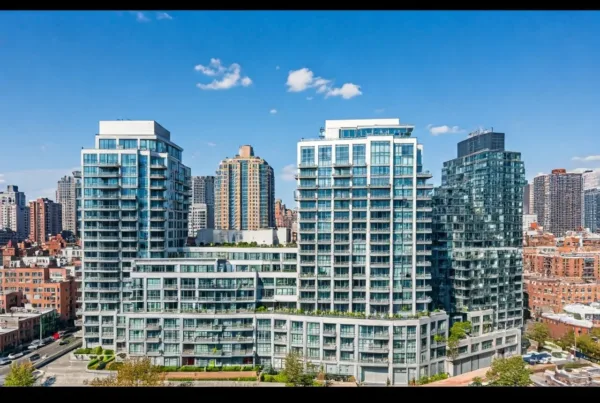Unlock the mystery behind sponsor units in real estate – discover the secrets to understanding this intriguing aspect of home buying.
Table of Contents
Introduction to Sponsor Units in Real Estate
Welcome to the fascinating world of real estate! Have you ever wondered about the different types of homes and apartments people live in? Well, today we are going to explore a special kind of living space called a “sponsor unit.”
Welcome to Real Estate!
In the world of real estate, people buy and sell properties like houses, apartments, and condos. Real estate is essential because it provides us with places to live, work, and play. Without real estate, we wouldn’t have homes to call our own or offices to work in!
What is a Sponsor Unit?
Now, let’s talk about sponsor units. A sponsor unit is a special type of apartment in a building that is typically owned by the developer or builder. These units are different from regular apartments because they may come with unique benefits or restrictions.
Why Should We Learn About Sponsor Units?
Understanding sponsor units is important for both buyers and sellers in the real estate market. Buyers need to know what they are getting into when purchasing a sponsor unit, and sellers should be aware of how these units differ from regular apartments. By learning about sponsor units, we can make informed decisions when it comes to buying or selling real estate.
Understanding Sponsor Units
Let’s dive deeper into understanding sponsor units in the world of real estate. Sponsor units play a significant role in the buying and selling of properties, especially in places like New York City.
Breaking Down ‘Sponsor Unit’
To understand what a sponsor unit is, let’s break down the term. A ‘sponsor’ refers to the original owner or developer of a building. They are responsible for selling units in the building, including sponsor units. A ‘unit’ simply refers to an individual apartment or property within the building. So, a sponsor unit is an apartment or property owned by the original developer and can be sold without co-op board approval.
Sponsor Units in NYC
In cities like New York City, sponsor units are quite common. These units are typically found in co-op buildings and offer buyers the opportunity to purchase a property without going through the typical co-op approval process, making them an attractive option for many.
Example of a Sponsor Unit
Imagine a new luxury building in the heart of Manhattan. The developer, who is also the sponsor, decides to keep a few units for themselves. These units are known as sponsor units and can be sold directly by the sponsor without needing approval from the co-op board. This gives buyers a more straightforward path to ownership.
The Role of a Sponsor in Real Estate
In the exciting world of real estate, sponsors play a crucial role in making transactions happen smoothly. But who exactly is a sponsor, and what do they do? Let’s dive into the details!
Who is a Sponsor?
A sponsor in real estate is typically an individual or a group of individuals who initiate a real estate project. They are often responsible for financing the project, acquiring the property, and overseeing its development. In simpler terms, sponsors are like the driving force behind a real estate deal.
What Do Sponsors Do?
Sponsors wear many hats in the real estate realm. They are involved in tasks such as securing financing for a project, obtaining necessary permits, hiring contractors, marketing the property, and ultimately selling or renting out the units. Essentially, sponsors take on the responsibility of bringing a real estate project from conception to completion.
Why Are Sponsors Important?
Having a sponsor involved in a real estate transaction can offer numerous benefits. Sponsors often have extensive experience in the industry, which means they can provide valuable insights and expertise throughout the process. Additionally, sponsors can help mitigate risks associated with real estate projects, as they are well-versed in navigating the complexities of the market.
| Sponsor Unit | Meaning |
|---|---|
| Definition | A sponsor unit in real estate refers to a property that is owned by the developer or sponsor of a condominium or co-op building. It is typically used for marketing purposes to showcase the features and layout of the building. |
| Ownership | The sponsor unit is owned by the developer or sponsor until it is sold to an individual buyer. The sponsor may choose to rent out the unit or use it as a model apartment to attract potential buyers. |
| Price | Sponsor units are often priced competitively to attract buyers and may come with incentives such as reduced closing costs or special financing options. However, the sponsor may have restrictions on resale of the unit. |
| Benefits | Buyers of sponsor units may have the opportunity to customize the unit before it is officially sold. They may also benefit from lower prices compared to other units in the same building. |
| Risks | There may be risks associated with buying a sponsor unit, such as delays in construction or changes to the building’s amenities. Buyers should carefully review the terms and conditions of purchasing a sponsor unit. |
Buying and Living in a Sponsor Unit
When it comes to real estate, understanding sponsor units is essential. Let’s dive into what it’s like to buy and live in a sponsor unit.
How to Buy a Sponsor Unit
Buying a sponsor unit is a bit different from purchasing a regular apartment. Typically, sponsor units are sold directly by the sponsor, bypassing the traditional real estate market. This can sometimes mean a quicker and less competitive buying process. However, it’s important to carefully review all the terms and conditions of the sale, as sponsor units may come with certain restrictions or conditions.
Living in a Sponsor Unit
Living in a sponsor unit can have its perks. Sometimes, sponsors offer these units at discounted prices or with special incentives to attract buyers. Additionally, sponsor units may come with unique layouts or features that set them apart from other units in the building. However, it’s important to note that living in a sponsor unit can also come with limitations, such as restrictions on renovations or alterations to the property.
Pros and Cons of Sponsor Units
There are both advantages and disadvantages to owning and living in a sponsor unit. Some of the benefits include potential cost savings, unique features, and a streamlined purchasing process. On the flip side, drawbacks may include limited control over renovations, restrictions on renting out the unit, or uncertainty about future changes in the building’s management.
Conclusion
In conclusion, understanding sponsor units in real estate is crucial for both buyers and sellers in the market. By grasping the concept of sponsor units and the role of sponsors, individuals can make informed decisions when it comes to purchasing or living in such properties.
Key Takeaways
To sum up, a sponsor unit in real estate is a property that is owned by the developer or sponsor of a building. These units are typically sold or rented out to buyers or tenants. Sponsors play a significant role in the real estate market by overseeing various aspects of property development and management. It’s essential to know about sponsor units to navigate the real estate market effectively.
Why This Matters
Understanding sponsor units can help buyers and sellers make informed choices. Knowing the ins and outs of sponsor units can assist individuals in finding the right property for their needs and understanding the responsibilities of sponsors in the real estate transaction process. This knowledge can ultimately lead to a smoother and more successful real estate experience.
Frequently Asked Questions (FAQs)
What is a Sponsor Unit?
A sponsor unit is an apartment in a co-op or condo building that is owned by the original developer or sponsor of the building. The sponsor typically keeps ownership of a few units after the building is completed.
How Do Sponsor Units Differ From Regular Units?
Sponsor units differ from regular units in that they may have unique features or be sold in different ways. Sponsor units are often sold directly by the sponsor, while regular units are typically sold by individual owners within the building.
Are Sponsor Units a Good Investment?
Begin your search and start earning cash back!
Whether buying a sponsor unit is a good investment depends on various factors such as the location of the unit, market conditions, and the terms of the purchase. It’s essential to consider all these factors before deciding to invest in a sponsor unit.







